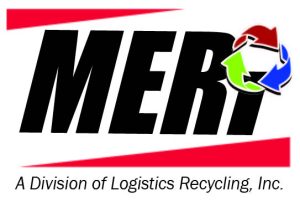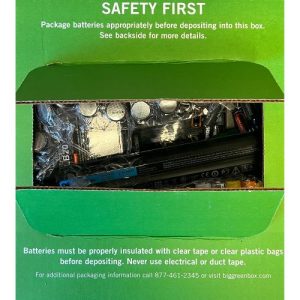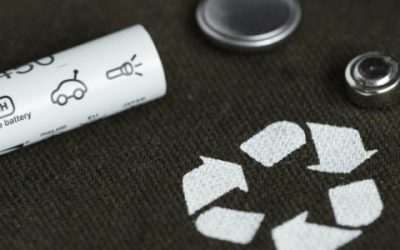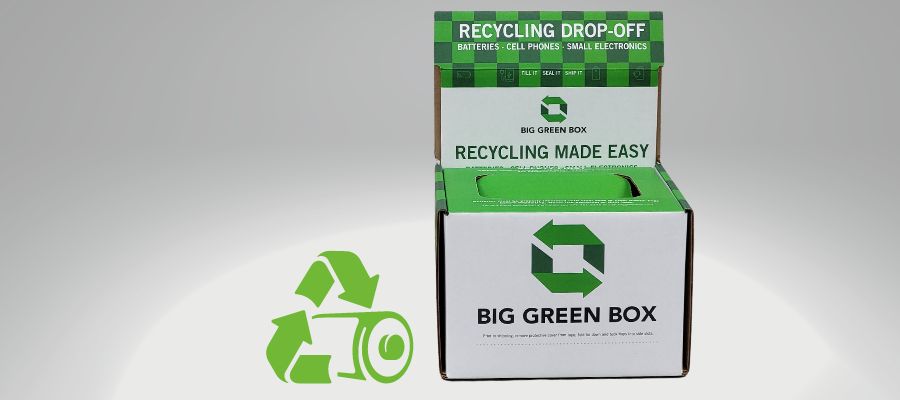
MERI is working with Cirba Solutions to offer the Big Green Box to healthcare facilities as an easy way to recycle batteries. The Big Green Box works well for other universal waste, like small electronics and cell phones.
Because hospitals and surgical centers use many batteries as part of their everyday operations, the Big Green Box helps them compliantly organize them for recycling. Best of all, valuable minerals inside batteries and small electronics, such as lithium and dry cell batteries, can be put to good use instead of heading to a commercial or hazardous waste landfill. Recycling universal waste is more economical than disposing it as a hazardous waste.
Green Box Has Everything Needed to Store Batteries
The Green Box is a cost-effective and compliant way to store batteries. This PGII standard container has appropriate DOT markings, including the accumulation start date line. It also outlines the types of batteries that can go in the box. For example, lithium metal (non-rechargeable) up to 25 grams, lithium-ion (rechargeable) up to 300 watt-hours, dry cell, and non-spill lead batteries up to 11 pounds can go in the Big Green Box. To prevent short circuits, apply transparent tape to all non-alkaline battery terminals before putting them into the box; otherwise, place them individually into the plastic bags that come with the box.
Follow Local, State, and DOT Regulations
Notably, the person responsible for packaging items into the Big Green Box must know their local, state, and DOT safety requirements. In Wisconsin, this universal waste training must be documented. In addition, they must comply with the battery packaging instructions on the box, apply transparent tape to all exposed terminals for non-alkaline batteries, store the box away from heat, and make sure that it weighs no more than the 43 lb. to comply with its DOT Special Permit 16474.
As part of its regular medical waste pickup, MERI can collect the facility’s Big Green Box and ship it out to properly manifest universal waste. This information will be included in the customer record found in MERI’s Genesis customer portal.
Wisconsin’s DNR Universal Guidelines
In Wisconsin, the DNR provides this handy poster around universal waste batteries. Batteries must be designated hazardous waste if not managed by these WI-specific universal waste guidelines. Download this MERI poster to help remind staff of the particular handling protocols around Wisconsin DNR’s Universal Waste Rules.
Besides batteries, universal waste includes fluorescent lightbulbs, used oil, antifreeze, pesticides, and mercury-containing equipment. All of these must be stored in a leak-proof container, dated when the first item is placed inside the container, and removed for recycling within one year of the date on the label.
Contact MERI to learn more about how the Big Green Box can help streamline your universal waste collection area.
For More Info on Using Big Green Box To Streamline Universal Waste Collection Area
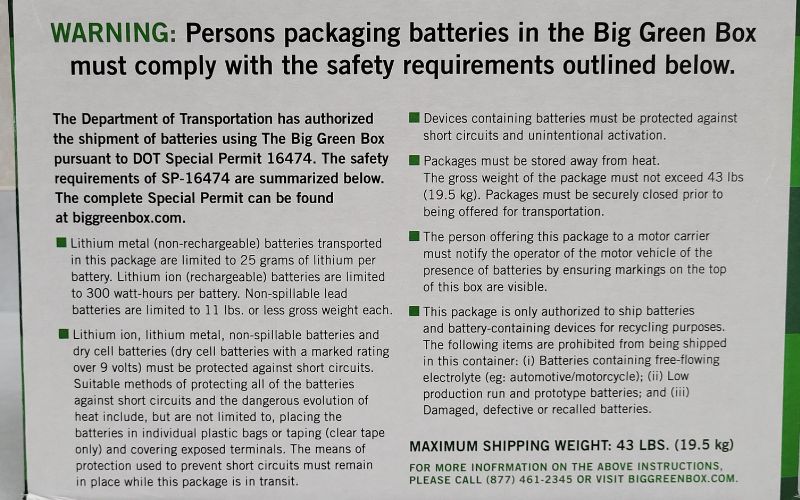
Dry cell batteries that can go into the Big Green Box include:
- Button batteries
- Lithium and lithium-ion batteries
- Rechargeable nickel-cadmium batteries
- Nickel-metal hydride batteries
- Sealed lead-acid batteries
- Silver oxide batteries
- Mercury oxide batteries
In WI, alkaline batteries do not need to be taped. They can be placed into the Big Green Box or disposed of as commercial waste.
